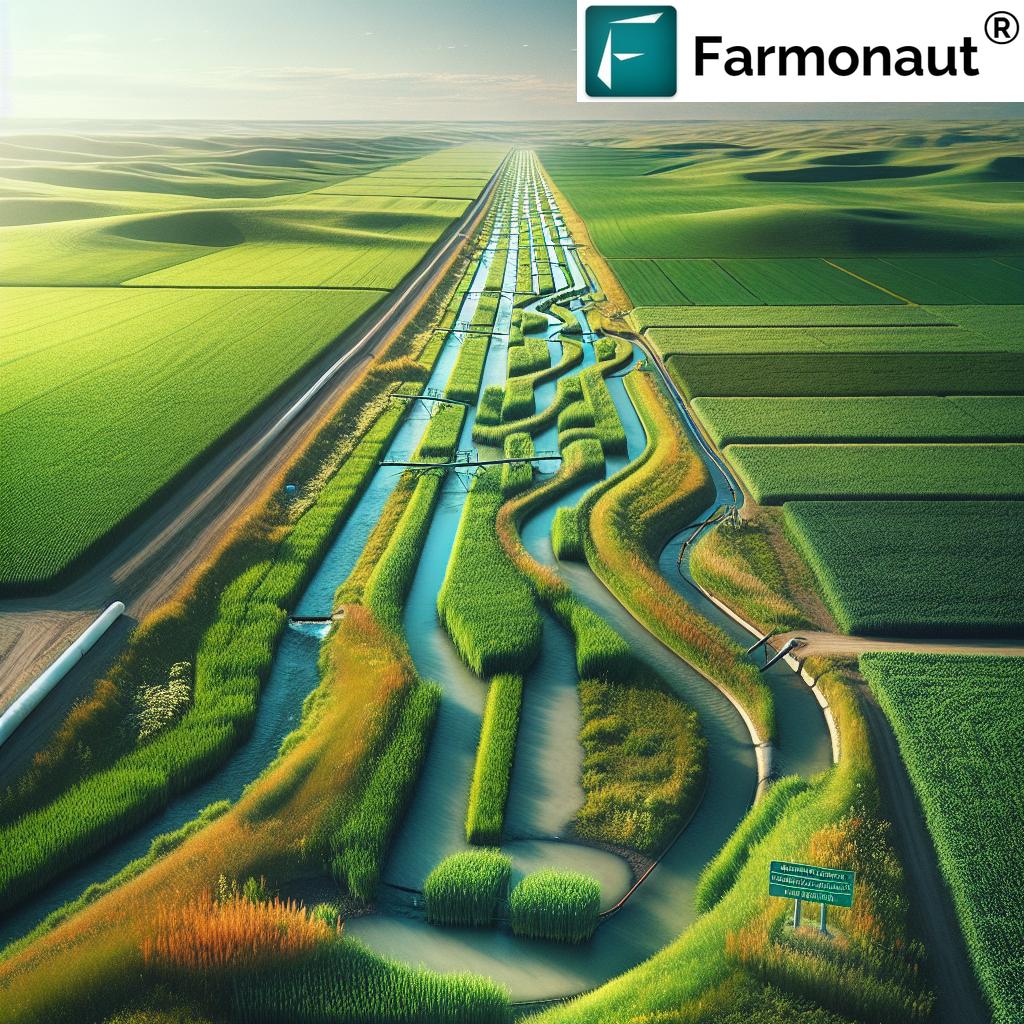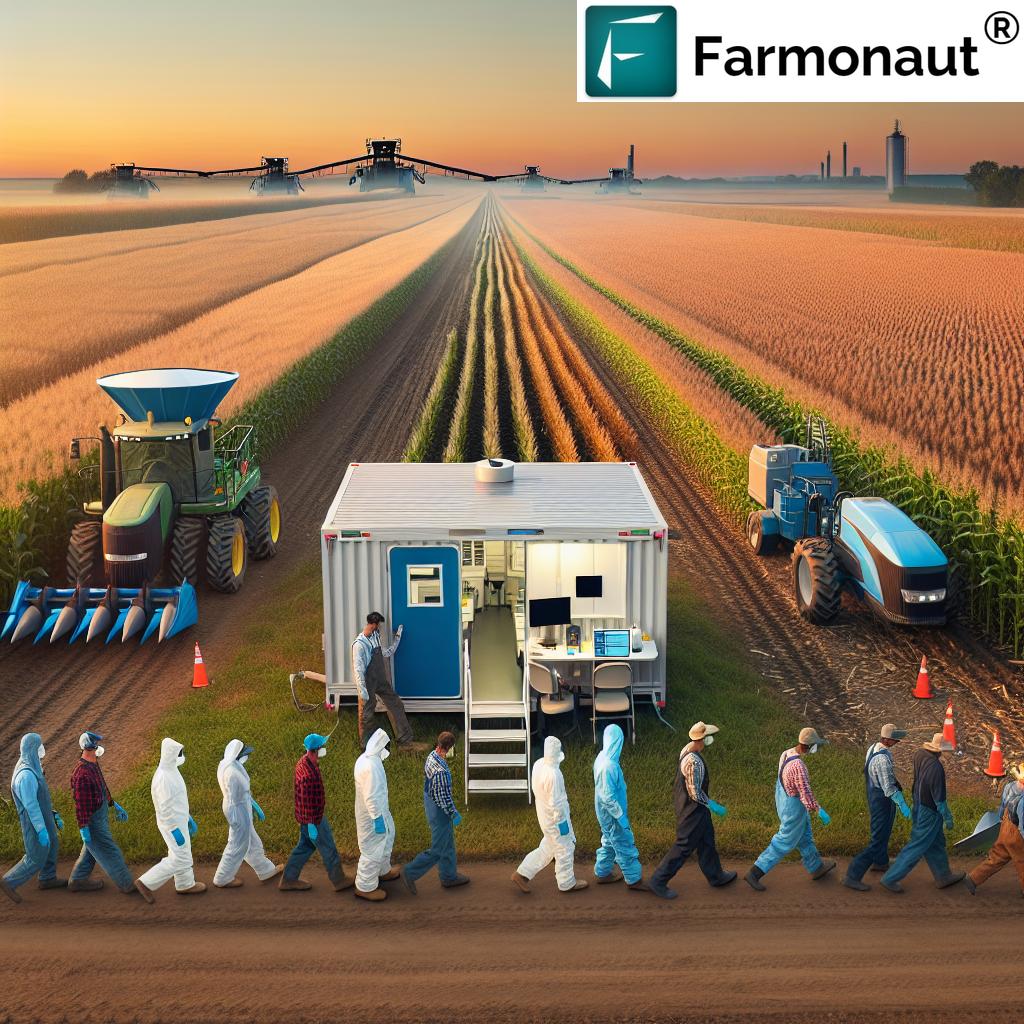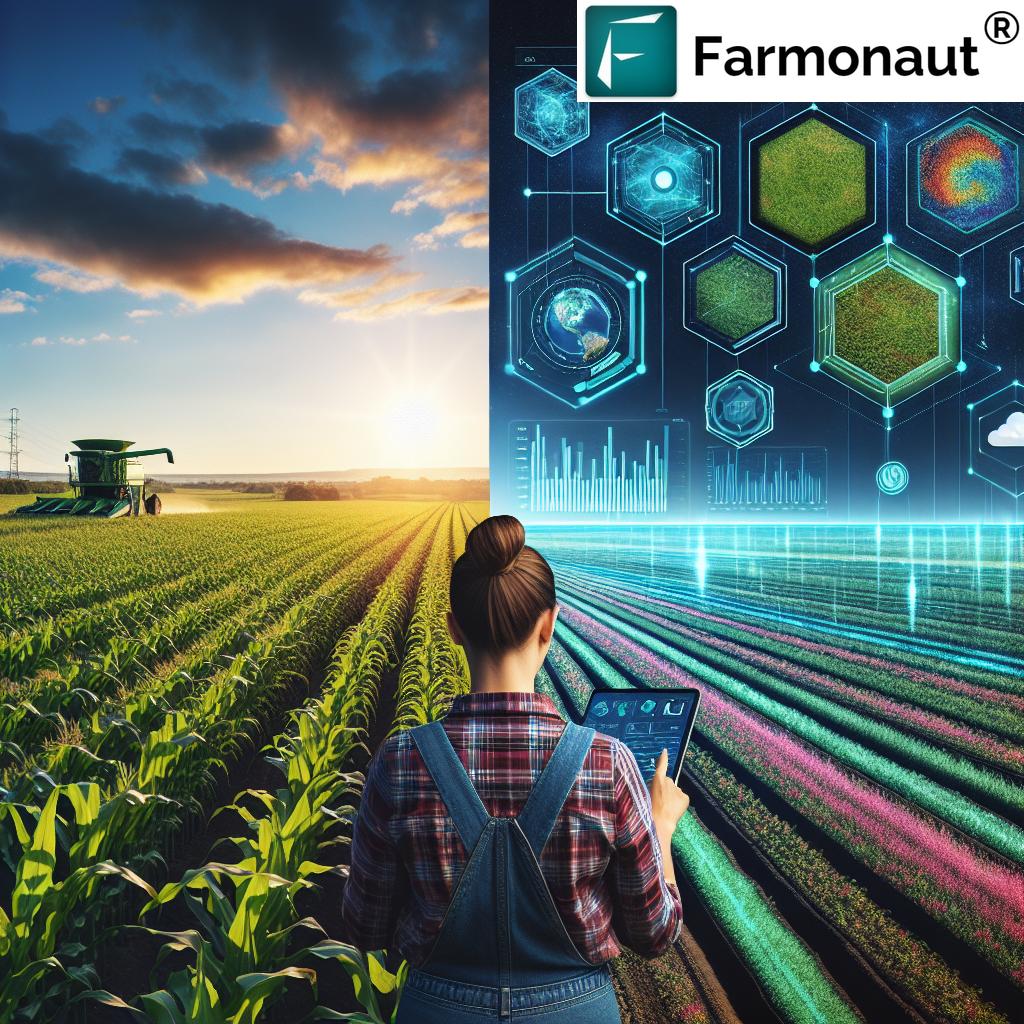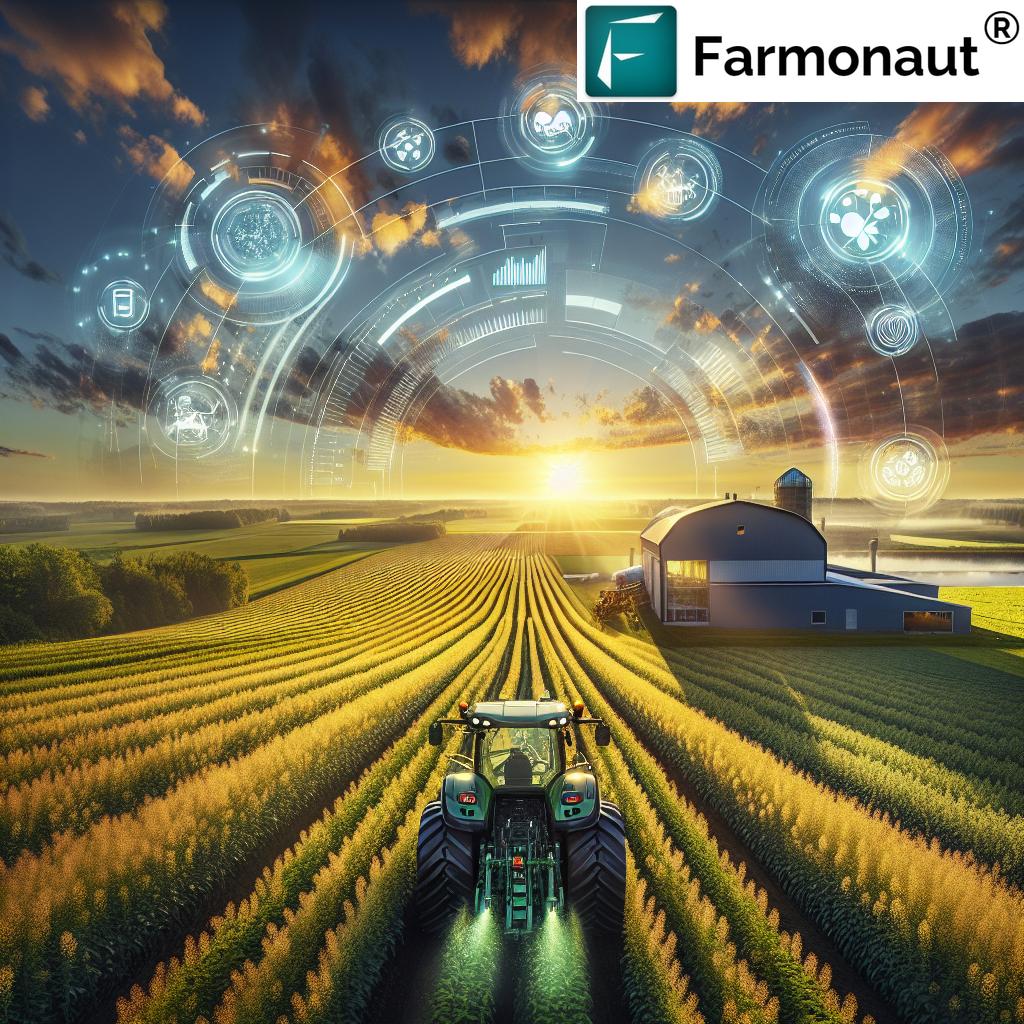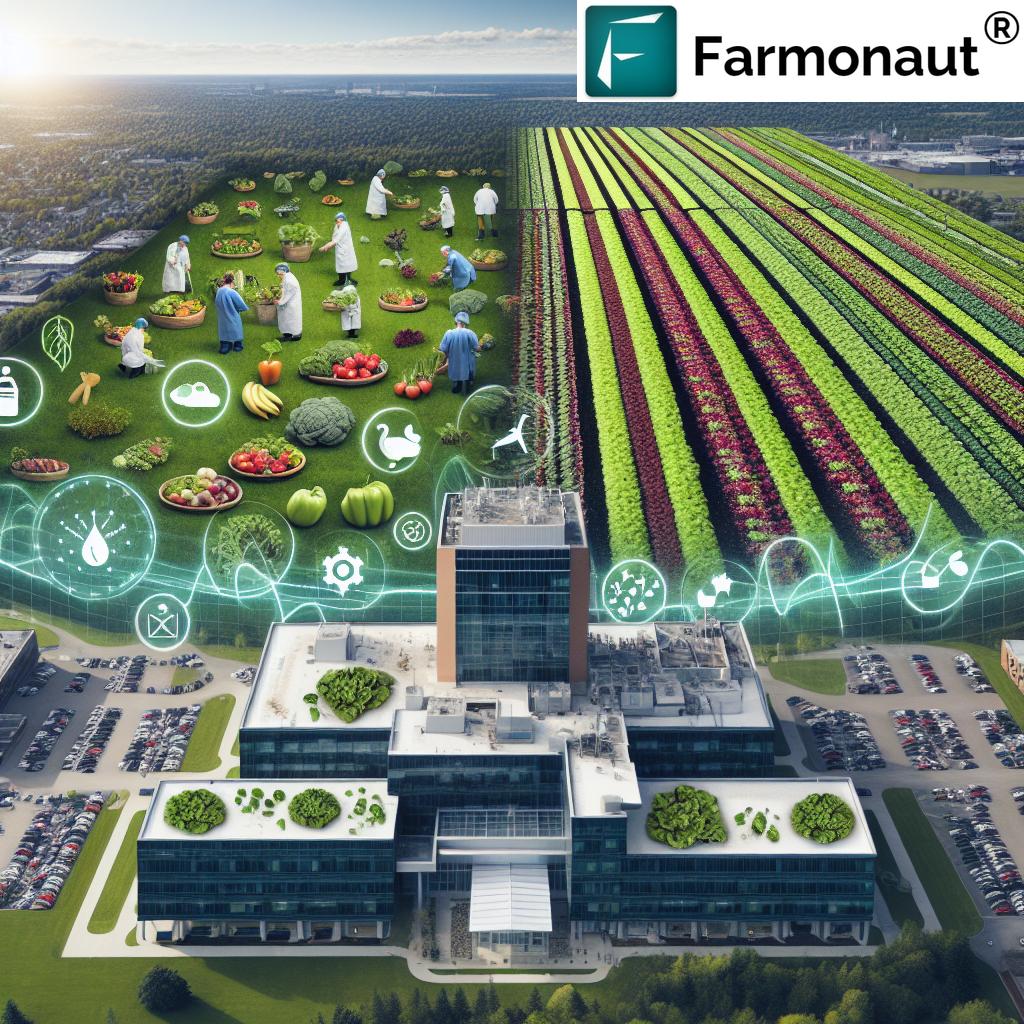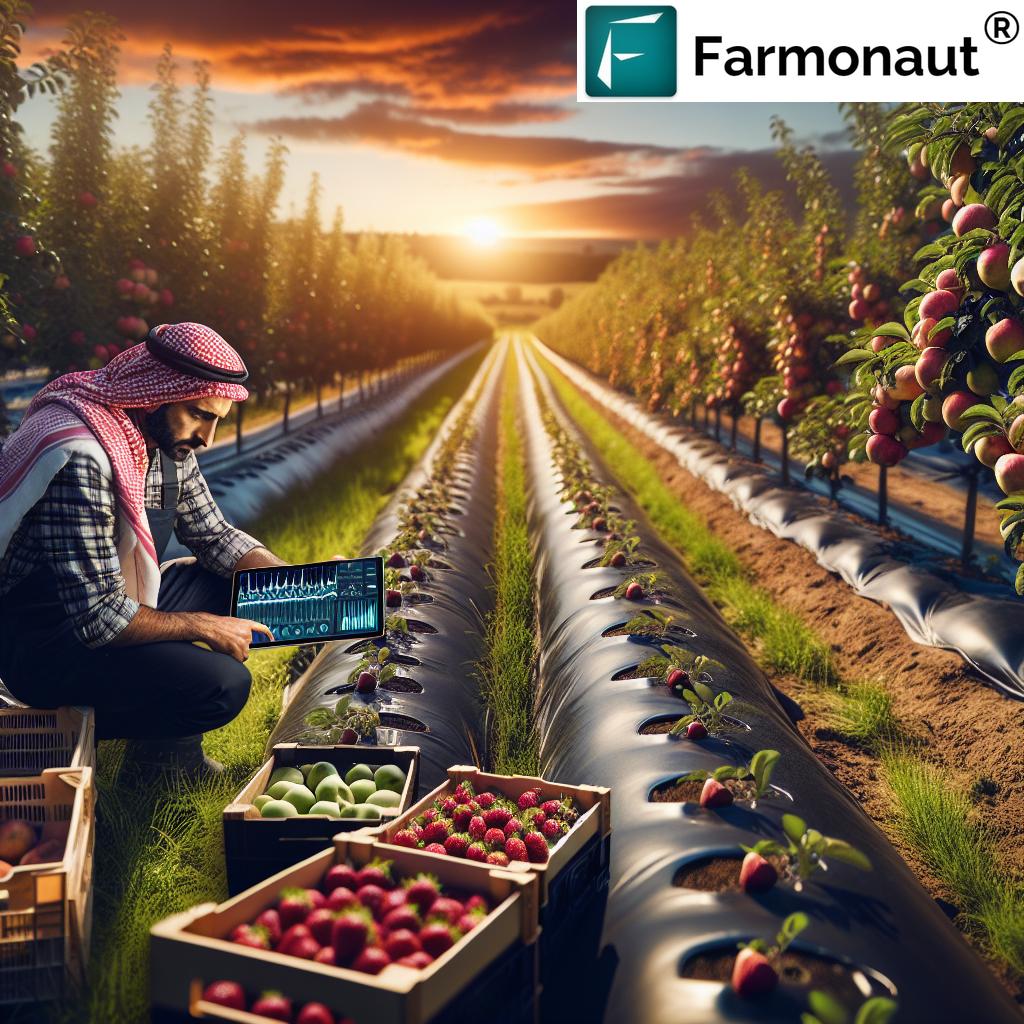Revolutionizing Canadian Agriculture: How Online Learning and Smart Farm Technology Are Shaping the Future of Farming Education
“Over 50% of Canadian farmers now utilize online learning platforms for agricultural education and skill development.”
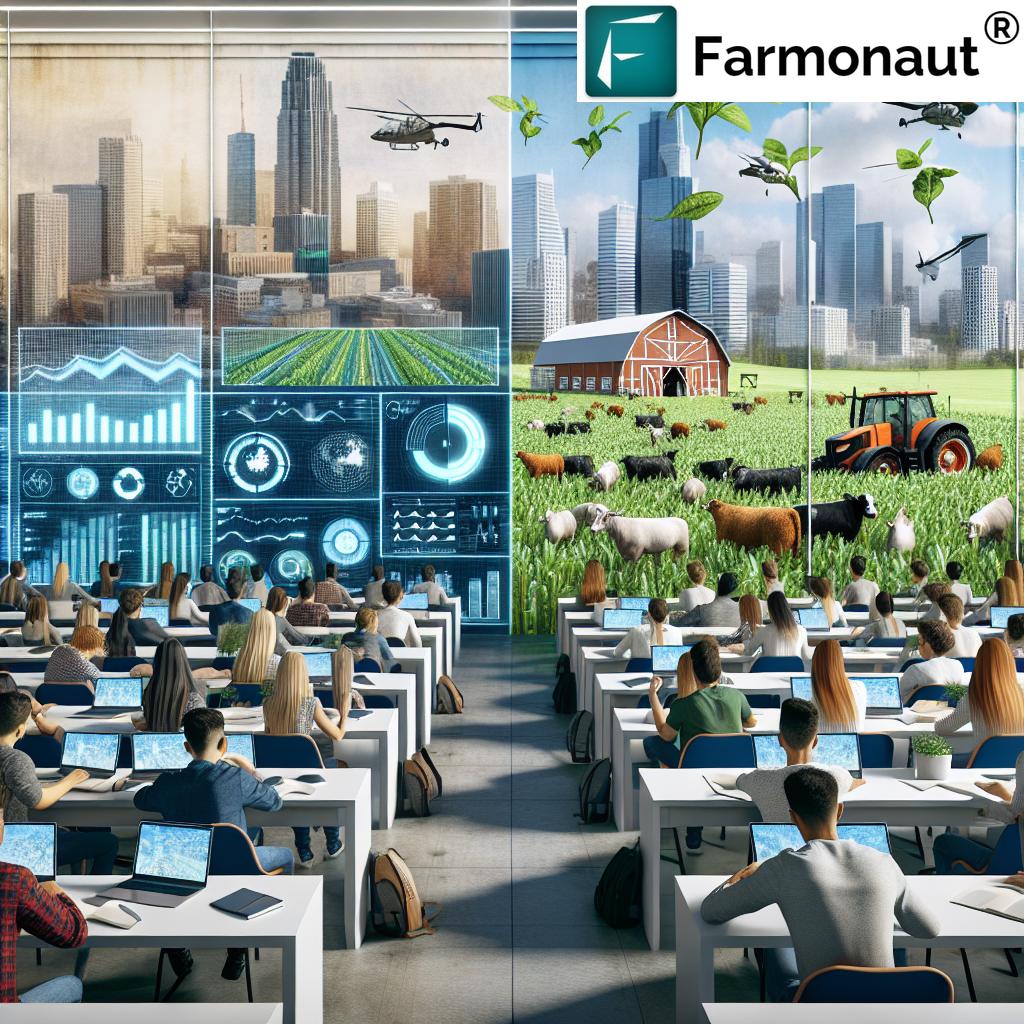
In the vast prairies and fertile fields of Canada, a quiet revolution is taking place. The landscape of agricultural education is evolving, embracing the digital age with open arms. As we delve into this comprehensive guide, we’ll explore how online learning and smart farm technology are reshaping the future of farming education across Canada and beyond. From the bustling urban farms of Toronto to the sprawling grain fields of the prairies, we’re witnessing a transformation that’s set to redefine how we grow our food and manage our agricultural resources.
The Dawn of a New Era in Agricultural Education
Traditional agricultural education has long been the backbone of farming knowledge in Canada. However, the rapid advancement of technology and the changing needs of modern farmers have paved the way for innovative educational initiatives. These new approaches are breaking down barriers and opening up opportunities for farmers managing acres of crops and livestock, as well as for urban agriculture enthusiasts looking to grow food in city spaces.
- Remote Agriculture Learning: Online platforms are making it possible for farmers to access education without leaving their fields.
- Smart Farm Technology: Integration of AI, IoT, and data analytics is revolutionizing farm management practices.
- Urban Farming Practices: Cities like Toronto are leading the charge in innovative urban agriculture education.
As we explore these developments, it’s crucial to understand how companies like Farmonaut are contributing to this educational revolution. Farmonaut offers advanced, satellite-based farm management solutions that are accessible via Android, iOS, web/browser App, and API. Their mission aligns perfectly with the evolving landscape of agricultural education, making precision agriculture affordable and accessible to farmers worldwide.
Online Learning: Bridging the Gap in Agricultural Education
The rise of online learning platforms has been a game-changer for agricultural education in Canada. These digital classrooms are breaking down geographical barriers, allowing farmers from remote areas to access high-quality educational content without leaving their farms.
- Flexibility: Farmers can learn at their own pace, fitting education around their busy schedules.
- Diverse Course Offerings: From crop management to livestock care, online platforms offer a wide range of specialized courses.
- Interactive Learning: Virtual simulations and interactive modules provide practical experience in a digital environment.
For instance, universities across Canada are now offering online agriculture programs that cater to both aspiring and experienced farmers. These courses cover everything from traditional farming techniques to cutting-edge agricultural technologies, ensuring that learners are well-equipped to face the challenges of modern farming.
Smart Farm Technology: The Future of Agricultural Management
Smart farm technology is revolutionizing the way we approach agriculture. By integrating advanced technologies like AI, IoT sensors, and data analytics, farmers can make more informed decisions about their crops and livestock.
- Precision Agriculture: Using satellite imagery and AI to monitor crop health and optimize resource use.
- Automated Systems: Smart irrigation and feeding systems that respond to real-time data.
- Predictive Analytics: Using big data to forecast weather patterns and market trends.
Farmonaut’s platform exemplifies the power of smart farm technology. Their satellite-based crop health monitoring system provides farmers with real-time insights into vegetation health, soil moisture levels, and other critical metrics. This data-driven approach helps farmers optimize crop yields while reducing resource wastage.
Explore Farmonaut’s API for advanced agricultural data
Urban Farming Practices: Bringing Agriculture to the City
“Urban farming initiatives in Toronto have increased crop yields by 30% through smart technology integration.”
Urban farming is gaining momentum across Canada, with cities like Toronto leading the way in innovative agricultural practices. These urban initiatives are not only producing food but also serving as educational hubs for city dwellers interested in agriculture.
- Rooftop Gardens: Utilizing unused urban spaces for food production.
- Vertical Farming: Maximizing space efficiency in urban environments.
- Community Gardens: Fostering community engagement and hands-on learning.
Educational programs centered around urban farming are springing up in schools and community centers, teaching sustainable agriculture practices and the importance of local food production. These initiatives are bridging the gap between urban consumers and the agricultural sector, creating a more informed and engaged populace.
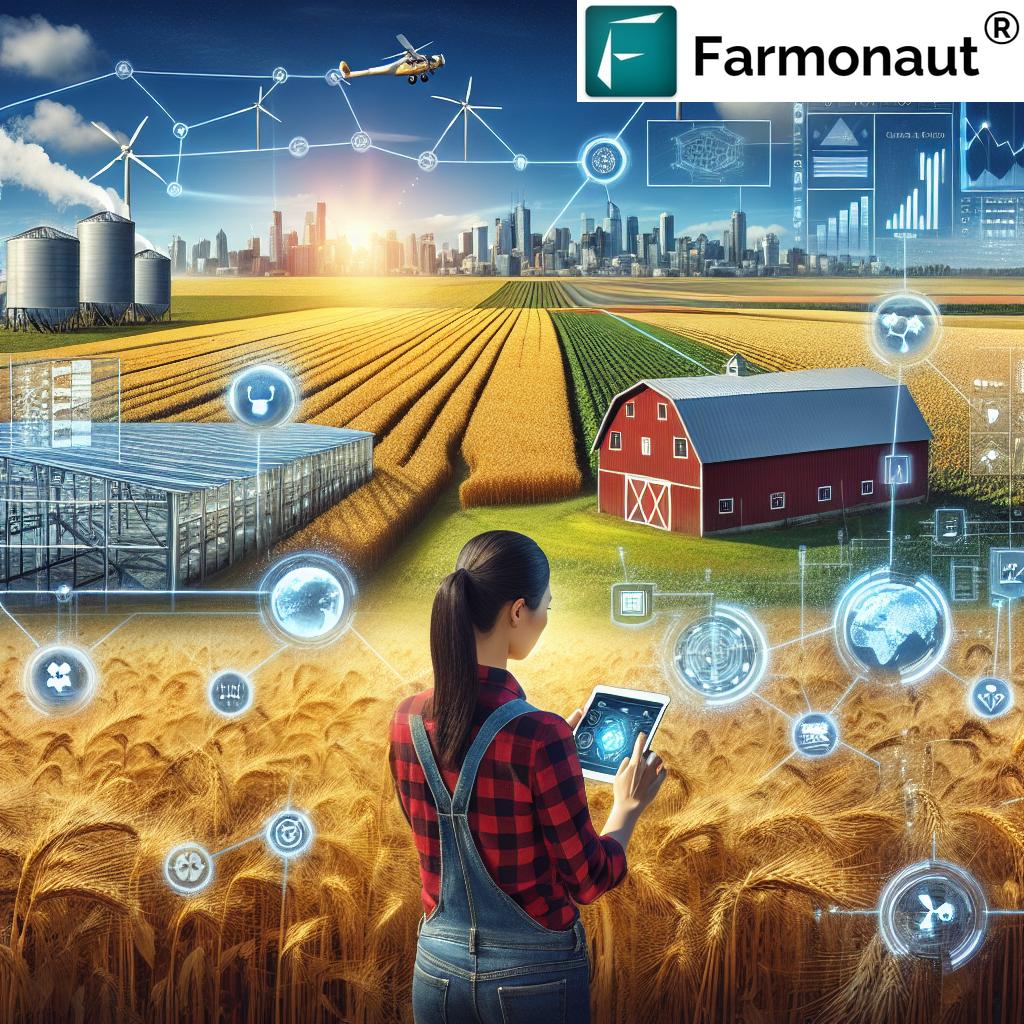
Integrating Business Skills with Traditional Farming Knowledge
In today’s complex agricultural market, success requires more than just farming expertise. Modern agricultural education is increasingly focusing on integrating business skills with traditional farming knowledge.
- Financial Management: Understanding budgeting, cash flow, and investment strategies for farm operations.
- Marketing and Sales: Learning how to market agricultural products effectively in a global marketplace.
- Supply Chain Management: Optimizing the journey from farm to table.
Online courses and workshops are now available that specifically target these business aspects of farming. These programs help farmers develop the skills needed to navigate the economic challenges of modern agriculture, from understanding futures markets to managing international trade relationships.
Access Farmonaut’s API Developer Docs for advanced agricultural insights
Indigenous Agricultural Practices: Honoring Tradition in Modern Farming
Canada’s agricultural landscape is rich with Indigenous knowledge and practices that have sustained communities for generations. Modern agricultural education is increasingly recognizing the value of these traditional methods and integrating them into contemporary farming practices.
- Three Sisters Farming: The traditional practice of planting corn, beans, and squash together for mutual benefit.
- Sustainable Harvesting: Techniques that ensure the long-term health of ecosystems.
- Traditional Pest Management: Natural methods of controlling pests without harmful chemicals.
Educational initiatives, such as those in the Opaskwayak Cree Nation, are working to preserve and promote these Indigenous agricultural practices. By combining traditional knowledge with modern technology, these programs are creating sustainable and culturally relevant farming methods for the future.
The Role of Technology in Agricultural Education
Technology is not just changing how we farm; it’s revolutionizing how we learn about farming. From virtual reality simulations to AI-powered learning platforms, technology is making agricultural education more engaging, accessible, and effective.
- Virtual Reality (VR) Farm Tours: Allowing students to explore diverse farming operations from anywhere in the world.
- Augmented Reality (AR) Training: Providing hands-on experience with farm machinery and processes in a safe, controlled environment.
- AI-Powered Learning Platforms: Tailoring educational content to individual learning styles and needs.
Farmonaut’s Jeevn AI Advisory System is an excellent example of how technology is enhancing agricultural education. This AI-driven tool provides real-time insights and expert crop management strategies, helping farmers apply their learning directly to their operations.
The Future of Farming Education: A Comparative Look
As we move towards a more technologically integrated future in agriculture, it’s essential to understand how modern educational methods compare to traditional approaches. The following table provides a comprehensive comparison:
| Aspects | Traditional Methods | Online/Smart Farm Technology Methods |
|---|---|---|
| Accessibility | Location-based, limited by physical proximity | Remote access, available anywhere with internet connection |
| Course Flexibility | Fixed schedules, structured curriculum | Self-paced learning, flexible course selection |
| Practical Experience | On-farm training, hands-on experience | Virtual simulations, augmented reality experiences |
| Cost | Higher tuition, accommodation costs | Lower overall costs, pay-per-course options |
| Technology Integration | Basic tools, traditional equipment | Advanced farm management software, IoT devices |
| Networking Opportunities | Local connections, in-person events | Global community, virtual networking platforms |
| Specialization Options | Limited by institution’s offerings | Diverse course offerings from multiple providers |
| Career Advancement Potential | Local market focus, traditional career paths | Broader industry exposure, emerging agricultural roles |
This comparison highlights the significant advantages that online and smart farm technology methods bring to agricultural education. While traditional methods offer irreplaceable hands-on experience, modern approaches provide unprecedented accessibility and flexibility, catering to the diverse needs of today’s farmers and agriculture enthusiasts.
Challenges and Opportunities in Modern Agricultural Education
While the advancements in agricultural education are promising, they also come with their own set of challenges and opportunities:
- Digital Divide: Ensuring equal access to online education in rural areas with limited internet connectivity.
- Adapting to Rapid Technological Changes: Keeping educational content up-to-date with fast-evolving agricultural technologies.
- Balancing Theory and Practice: Finding ways to provide hands-on experience in digital learning environments.
- Sustainability Focus: Integrating environmental sustainability into all aspects of agricultural education.
These challenges present opportunities for innovation in educational delivery and content. For instance, Farmonaut’s platform addresses the need for practical application by providing real-time data and insights that farmers can immediately apply to their operations.
The Impact on Canadian Agriculture
The evolution of agricultural education is having a profound impact on Canadian agriculture:
- Increased Productivity: Farmers equipped with the latest knowledge and technology are seeing significant increases in crop yields and livestock production.
- Sustainable Practices: Education on sustainable farming methods is leading to more environmentally friendly agricultural practices across the country.
- Economic Growth: The integration of business skills is helping Canadian farmers compete more effectively in global markets.
- Innovation Hub: Canada is becoming a hub for agricultural innovation, attracting talent and investment from around the world.
From the grain fields of the prairies to the orchards of the Okanagan Valley, Canadian farmers are leveraging their enhanced education to drive the industry forward. The future of Canadian agriculture looks bright, with smart farm technology and online learning paving the way for a more efficient, sustainable, and profitable sector.
Conclusion: Embracing the Future of Farming Education
As we’ve explored throughout this guide, the landscape of agricultural education in Canada is undergoing a remarkable transformation. Online learning and smart farm technology are not just changing how we learn about farming; they’re reshaping the very nature of agriculture itself.
The integration of business skills, the revival of Indigenous practices, and the rise of urban farming are all contributing to a more diverse and resilient agricultural sector. As we look to the future, it’s clear that the farmers of tomorrow will need to be as comfortable with data analytics and AI as they are with soil and seeds.
Companies like Farmonaut are at the forefront of this revolution, providing the tools and technologies that bridge the gap between traditional farming knowledge and cutting-edge agricultural science. Their satellite-based solutions and AI-driven insights are empowering farmers to make data-driven decisions, optimize their operations, and contribute to a more sustainable food future.
The future of farming education in Canada is bright, promising a new era of smart, sustainable, and efficient agriculture. As we continue to innovate and adapt, one thing remains clear: the heart of farming – the connection to the land and the commitment to feeding communities – will always remain at the core of agricultural education.
FAQs
- How is online learning changing agricultural education in Canada?
Online learning is making agricultural education more accessible, flexible, and diverse. It allows farmers to access courses from anywhere, learn at their own pace, and choose from a wide range of specialized topics. - What role does smart farm technology play in modern agricultural education?
Smart farm technology, such as AI, IoT sensors, and data analytics, is integrated into agricultural education to teach farmers how to use these tools for more efficient and sustainable farming practices. - How are urban farming practices being incorporated into agricultural education?
Urban farming practices are being taught through community programs, school initiatives, and online courses, focusing on techniques like rooftop gardening, vertical farming, and community garden management. - What business skills are being integrated into agricultural education?
Modern agricultural education now includes topics like financial management, marketing, sales, and supply chain management to help farmers navigate the business aspects of agriculture. - How are Indigenous agricultural practices being preserved and taught?
Indigenous agricultural practices are being incorporated into educational programs through partnerships with Indigenous communities, focusing on traditional methods like Three Sisters farming and sustainable harvesting techniques.






